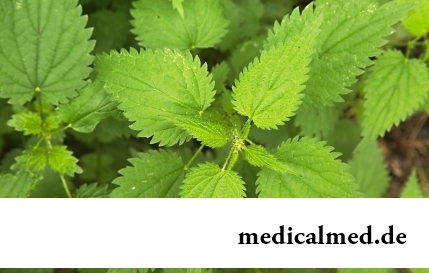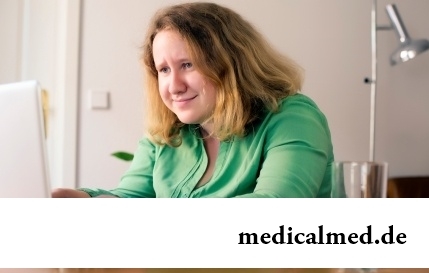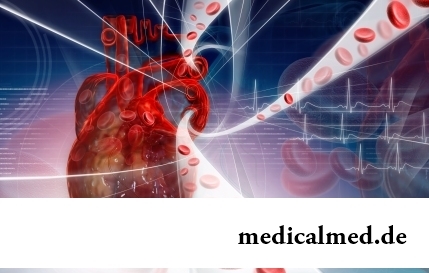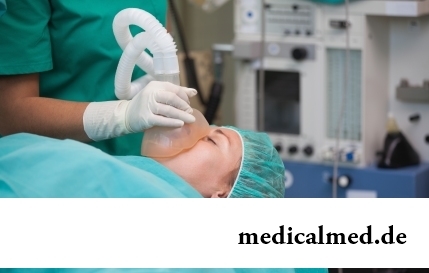





Gastroenterologist
The gastroenterologist – the doctor who specializes in treatment and diagnosis of diseases of a digestive tract. Such bodies as a gullet, a stomach, a small and large intestine, a liver and biliary tract, a pancreas are under authority of the gastroenterologist.

On reception to the gastroenterologist, as a rule, patients get according to the recommendation and the direction of the therapist. Sometimes people with complaints to problems with digestion independently address for consultation the gastroenterologist. Many people before addressing the specialist, read comments on gastroenterologists.
There is succession and staging in treatment of bodies of a GIT. The medical help can be received in out-patient conditions of policlinic on reception at the gastroenterologist, and in case of need patients are hospitalized in specialized gastroenterological department. The gastroenterologist helps to exclude life-threatening states, for example, a perforation of the ulcer or impassability.
Features of gastroenterological inspection
Before being engaged in therapy, the gastroenterologist gets acquainted with the anamnesis of life of the patient and the anamnesis of his disease. For this purpose the gastroenterologist asks the patient on living conditions and work, heredity, on possible harmful factors at work and eating habits which can provoke disturbances in digestion. For example, the peptic ulcer of a stomach and duodenum has pronounced genetic predisposition, and also can be provoked by constant stresses at work.
It is important to gastroenterologist to know chronology of development of a disease – prescription of its emergence, frequency and seasonality of aggravations, the nature of pains, symptoms which show the disease and ways facilitating a condition of the patient.
At the gastroenterologist patients most often complain of consultations on:
- Abdominal pains;
- Appetite disturbances, reduction of weight;
- Dyspepsia (nausea, vomiting, heartburn, eructation);
- Disturbances in character and frequency of a chair;
- Bleedings from a digestive tract.
Laboratory inspection will be the following stage in diagnosis of diseases of a digestive tract.
Directed by the right diagnosis the gastroenterologist can be helped by results of the general and biochemical analysis of blood (enzymes, bilirubin, crude protein and its fractions, PTV), markers of a viral hepatitis and an antibody to mycoplasmas, chlamydias, protozoa, lyambliya. In analyses a calla causative agents of intestinal infections, eggs a worm or protozoa can be found.
Tool diagnosis by the gastroenterologist
The following tool diagnostic methods help to reveal localization and the nature of a disease of bodies of a GIT:
- Endoscopy;
- Intragastric rn-metriya;
- Manometriya of a digestive tract;
- Ultrasonic inspection;
- Biopsy;
- X-ray analysis with contrast, etc.
Endoscopy by means of a flexible fibroendoskop is carried out by the endoscopist. With its help it is possible to examine a surface of hollow digestive organs, and also to take material on a biopsy (microscopic examination of fabrics). Endoscopy allows to find erosion and ulcers, polyps, tumoral changes or bleedings.
The intragastric rn-metriya is carried out to time of endoscopy or using the special rn-probe in the form of the capsule which the patient swallows. Measurement of acidity comes at the different levels of a digestive tract from a gullet to intestines. This method of inspection according to gastroenterologists is the most reliable in identification of a gastroesophageal reflux (throwing of gastric contents in a gullet). It also is auxiliary for the gastroenterologist in diagnosis of hyperacid gastritises (they are followed by a hyperoxemia of a gastric juice) and anacid states (when acidity on the contrary, is reduced).
The gastrointestinal manometriya allows to study sokratitelny activity of a gullet, stomach and intestines. It is shown at disturbances of motility of a gullet (a cardia achalasia, a diffusion esophagospasm, etc.), at locks, not giving in standard therapy and suspicion on impassability of intestines, at disturbances of motility of a large intestine.
Ultrasound examination of a digestive tract most informatively in diagnosis of damages of a liver, its channels and a pancreas – that is parenchymatous, but not tubular bodies. Ultrasonography of abdominal organs helps to find to the gastroenterologist of disturbance in structure of these bodies, increase in their sizes, stones or tumoral inclusions.
The radiological diagnostic method with contrast agents is used for detection of ulcers, strictures, tumors, disturbances of passability of biliary tract and intestines. According to gastroenterologists despite beam load of the patient in certain cases not to do without him, for example, at suspicion of a perforation of hollow body or intestinal impassability.
On the basis of a full picture of inspection the gastroenterologist on reception exposes the diagnosis and appoints treatment. At some chronic diseases patients are observed by the gastroenterologist constantly.
Children's gastroenterologist
Because the organism of the small child differs in features of a structure and functioning, the certain specialist – the children's gastroenterologist is engaged in health of his digestive tract.
Difficulty of collecting complaints and the anamnesis of a disease, and also difficulty in carrying out tool diagnosis belongs to features of work of the children's gastroenterologist. The profile of diseases at children also differs from adults a little, and dosages of drugs are expected the child's weight, and the children's gastroenterologist considers it in the work.
The children's gastroenterologist is faced by an important task – not only to cure a disease, but also not to allow its transition to a chronic form that has an adverse effect on development and growth of the child.
More than 500 million dollars a year are spent for allergy medicine only in the USA. All of you still believe that the way to finally win against an allergy will be found?

The phenomenon of the panic attack is known long ago, but the reasons of its emergence still are up to the end not found out. It is established that more than 30%...
Section: Articles about health
On health of the person physicians know about salutary action of animals long ago. About 7 thousand years ago great Hippocrates recommended to the patients riding walks for strengthening of a nervous system and increase in vitality....
Section: Articles about health
From the failure of work of immune system which is shown in the form of an allergy, statistically, more than 40% of the population of the globe suffer. In most cases pathological reactions cause the substances which are contained in food stuffs, hair of animals, medicines, goods of household chemicals, cosmetics, pollen of plants, etc. On the one hand, the disease such is capable to spoil quite thoroughly to the person life....
Section: Articles about health
New year, wedding, birthday, office party – an occasion to drink at the Russian person will always be. How to reduce a negative impact...
Section: Articles about health
About 20% of the population of our planet have a hypertension (permanent increase in arterial pressure). This disease has an adverse effect on the standard of living, reduces working capacity, and in the absence of systematic treatment threatens with such complications as a heart attack...
Section: Articles about health
Frosty air, fresh wind and easy snowball at most of Russians are associated with cheerfulness, health and cheerful entertainments on which our winter is so generous. But, unfortunately, cold season sometimes brings also troubles with health. It is not about seasonal colds and frostbites, and about those chronic illnesses which symptoms are shown preferential in the winter....
Section: Articles about health
In consciousness of our many compatriots idea that folk remedies if no more эфф strongly took roots...
Section: Articles about health
Work of a brain is extremely complex and in many respects is not studied yet. It is confirmed also by the features of thought processes which are shown when the person sleeps. Let's tell about some of them....
Section: Articles about health
Radiological methods of a research are applied in medicine more than hundred years, and thanks to them millions of lives were saved. In many cases without X-ray it is impossible to make exact idea of a condition of bodies and fabrics, it is correct to make the diagnosis. Nevertheless, many myths about researches such continue to exist. Let's consider the most widespread of them....
Section: Articles about health
Each of us repeatedly noticed that the people having the same passport age are sometimes not similar on one-years at all. One...
Section: Articles about health
Aspirin (acetylsalicylic acid) – one of those drugs which are known literally to all. It is available in each home first-aid kit, and many accept it at the first signs of an indisposition, often without having a fair idea of properties and a therapeutic eff...
Section: Articles about health
Life activity of one-celled fungi of the sort Candida, related to yeast is a proximate cause of development of candidiasis (milkwoman). Normal these microorganisms are a part of the microflora living in an oral cavity and intestines of most of people and also in a female genital tract. The pathological phenomena are observed when fungi begin to breed too violently. At the same time there is an inflammatory process affecting mucous membranes and which is shown very nepr...
Section: Articles about health
For most of the working people the problem of having a snack is particularly acute enough. Sooner or later there is a question: what is possible quickly for a sja...
Section: Articles about health
The next flu epidemic leads to the next panic, from year to year we give in on these manipulations: professionally alarming voice of the announcer in news, reports with calculation of the died patients, an interview with people in white dressing gowns and advertizing of anti-influenza means ра...
Section: Articles about health
Stability of a hormonal background is one of the most important conditions of preservation of health of the woman. At the same time endocrine system – the thin device extremely sensitive to any external influences. Changes of a way of life (for example, a diet), emotional stresses, infectious diseases, reception of some drugs can become the reason of hormonal failure. Besides, work of hemadens has the natural specifics in certain moments of life: on various St...
Section: Articles about health
What is in our understanding weeds? It plants which are considered to be suitable only for compost pits and feeding жи...
Section: Articles about health
Each person has easy indispositions which he transfers "standing", trying not to ask for medical care. Arguments at the same time are adduced same: "it is a trifle, itself will pass", "I have too many important issues", "there are no wish to spend time on...
Section: Articles about health
One of the major chemical processes happening in a human body are oxidation reactions. They go with participation of fats and carbohydrates which we receive from food, and the oxygen getting to us from air. A main goal of such reactions is obtaining the energy necessary for life activity. Unfortunately, as a result of these processes dangerous by-products – so-called free radicals are allocated. To minimize harm which they can cause to the person neo...
Section: Articles about health
The Genetically Modified Organisms (GMO) are plants or animals (as a rule, agricultural) in whose genotype...
Section: Articles about health
Obesity is called a disease of 21 centuries, for the last 100 years the number of the people suffering from excess body weight considerably increased. Statistically, on Earth already about 1,5 billion corpulent people, and 500 million from them have extreme degree of completeness, are negative...
Section: Articles about health
The technique of acupuncture (acupuncture) is used in the medical purposes more than three and a half millennia. It is eurysynusic and recognized as official medicine in the majority of the developed countries of the world. Influence by fine needles on so-called points of acupuncture contributes to normalization of a metabolism and hormonal background, activates protective forces of an organism, has anesthetic and antiinflammatory effect, stabilizes a condition of mentality....
Section: Articles about health
The state of health of the person in many respects depends on chemical composition of biological liquids of an organism. Specialists consider that з...
Section: Articles about health
Within several decades of our compatriots convinced that the use of butter nasty affects a condition of coronary vessels. As a result the reputation of a product was impaired thoroughly a little, and many almost ceased to include...
Section: Articles about health
Dark circles (bruises) under eyes – a shortcoming with most of which often fight against the help of cosmetics (proofreaders, saloon procedures and so forth), eliminating only its visibility. However, according to doctors, skin around eyes – the indicator of many disturbances in an organism. To reveal them at early stages, without having disguised bruise, and having addressed its reasons – a task of each person who is regularly finding under with own eyes dark stains. Early detection and elimination of the disease lying in wasps...
Section: Articles about health
For the city dweller the fitness is the most convenient sport. It is enough to acquire the subscription to the gym to receive to a toast...
Section: Articles about health
History of use of an anesthesia during operations contains more than 160 years. Annually in the world hundreds of thousands of surgical interventions during which to patients the substances immersing them in a dream and saving from pain are entered are carried out. Using an anesthesia to these...
Section: Articles about health
Eyes – unique body on the structure thanks to which the person obtains about 80% of information on the world around: about a form, color, size, the movement, and also many other parameters of objects or phenomena. But whether much we know about the most valuable sense body which, according to the scientist Sechenov, provides us about one thousand various feelings a minute? Let's consider 10 most surprising facts about eyes and sight....
Section: Articles about health
